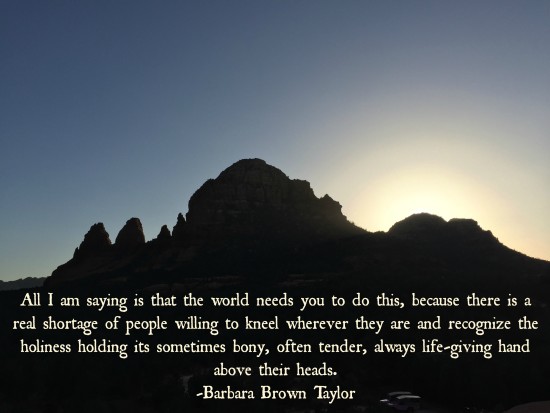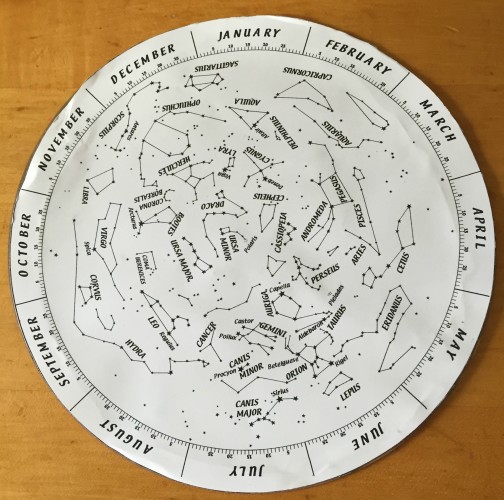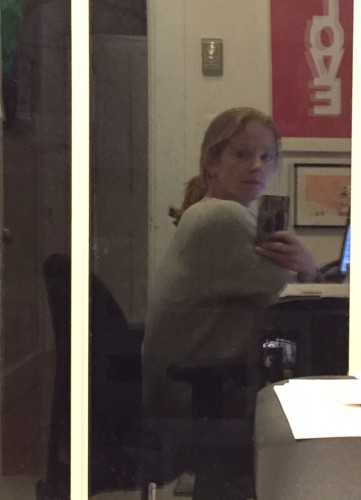
I shared this image on Instagram a few days ago. This is what Sedona felt like – the sacred was all around us, and I couldn’t stop noticing it. One day we went for the short hike up to the vortex on the property of our hotel. We sat up there for a bit, talking to another guest, and Grace and Whit had lots of questions. She was very nice, and told us all about the energy of the place. I could tell that certain members of my family weren’t buying it.
As we walked down, though, Whit trailed behind with me. He stopped briefly to examine the cairn he’d built on the way up, and I paused with him. As he stood up he looked at me. “I think I felt something,” he said quickly.
“Me too, Whit.” I smiled, rubbed his shoulders, and we kept walking.
All week I felt the holiness in the air. Maybe because I’d heard so much about it, who knows. But whatever the reason, the very atmosphere in Sedona was charged with something both humming with vitality and deeply peaceful. I thought about it a lot. Annie Dillard rang in my head, alongside Barbara Brown Taylor (above, and the passage about altars I quoted on Monday): “What a hideout: Holiness lies spread and borne over the surface of time and stuff like color.”
And since coming home I’ve been thinking about choosing. Do I choose to see the divinity all around me? It doesn’t feel like a choice, I can tell you that. We can remain open to the sacred that exists in our ordinary lives, of that much I’m sure. But do we opt to see it, or does it just appear to some people?
Maybe this ambivalence about choosing what we see is connected to how I’ve always felt a little reservation about the notion that we choose happiness. Do we choose joy? I’m honestly not sure. I don’t know that I choose how I am in the world – I’ve been porous since day one, and as I get older I’m getting more that way. But is this something I choose? I don’t think so. It feels more like how I exist in the world, the way I’m wired, some kind of deep-seated default orientation. Not saying I wouldn’t choose it, but I’m not sure that I do.
How do you feel about the notion of choosing joy, or choosing receptivity to life’s holiness?


